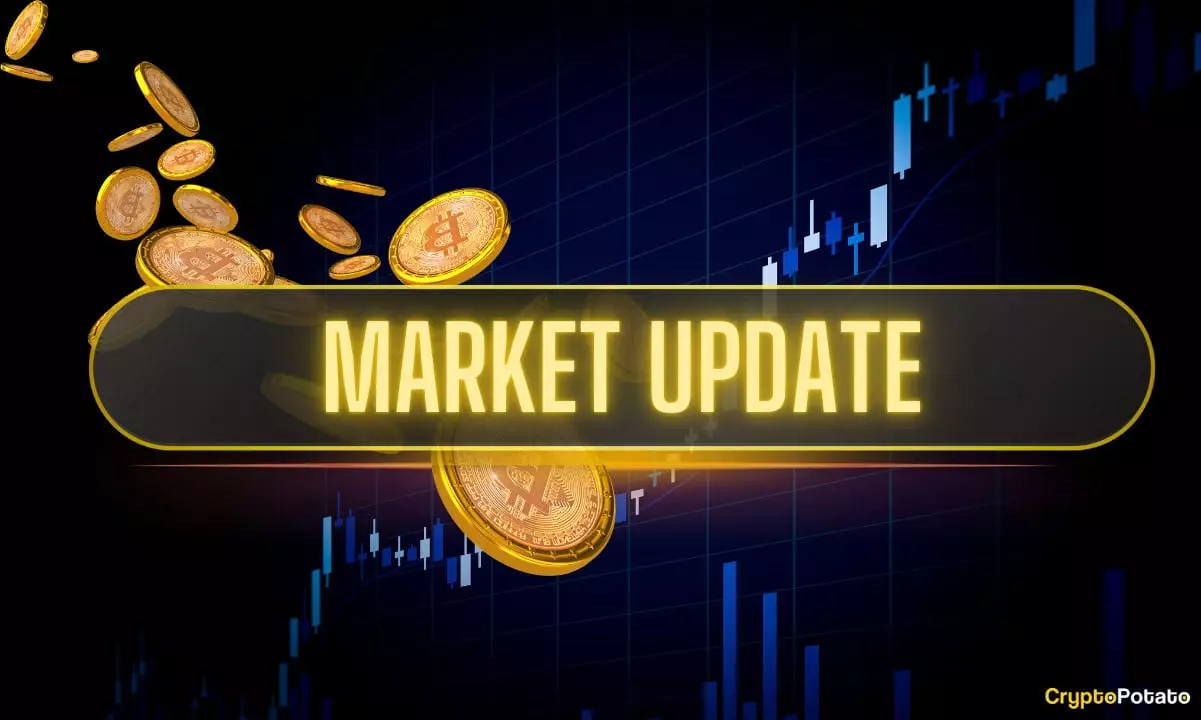In a world bursting with economic volatility, Bitcoin has gradually emerged as a refuge, challenging old paradigms and igniting debates around the future of currency. The cryptocurrency, often labeled as digital gold, has showcased surprising resilience even when external factors threaten its position. Recently, the value of Bitcoin fluctuated around the $84,000 to $85,000 range, drawing attention against the backdrop of ongoing trade tensions, particularly between the United States and China. While many might bemoan the unpredictable nature of these events, a closer look reveals that such turmoil could spur more investors to take the plunge into the cryptosphere. As established fiat currencies grapple with inflation and unstable policies, we might be standing at the precipice of a larger embrace of Bitcoin and its contemporaries.
Engagement of Institutional Players
What’s particularly compelling is the increased interest from institutional investors, or “whales,” who are taking decisive steps to accumulate Bitcoin, often between 1,000 and 10,000 BTC. Their aggressive buying signals a burgeoning confidence in what many deem an undervalued asset. In stark contrast to past downturns, this wave of investment seems more calculated and less speculative. Institutional players are doing their homework, reading the market nuances, and positioning themselves for potential long-term gains. They are not merely reactive bubbles; they see in Bitcoin something that others might overlook—stability in turmoil.
US Government’s Flirtation with Bitcoin
Adding another layer to the current narrative is the U.S. government’s contemplation of a national Bitcoin reserve. Bo Hines, a notable figure associated with the Presidential Council of Advisers on Digital Assets, hinted at integrating Bitcoin into the fabric of governmental financial strategies, funded by revenue from tariffs. This notion betrays a subtle acknowledgment of Bitcoin’s significance in global finance and may lay the groundwork for its deeper integration into the U.S. financial system. Should this idea materialize, it would signify not just a political endorsement but a monumental shift, potentially legitimizing Bitcoin in mainstream economic discussions.
The Expanding Market Landscape
While many cryptocurrencies like Solana and Bitcoin Cash have experienced notable spikes, it is essential to remember that Bitcoin still garners substantial market dominance—over 60% as evidenced in recent weeks. This dominance reflects not just brand recognition but a trust built over years of turbulent trading. Although newer assets can show impressive performance metrics, they often lack the resilience and historical data that Bitcoin commands. As market cap pushes to an astounding $2.75 trillion, it’s becoming abundantly clear: the future may favor incumbents unless a significant paradigm shift occurs.
The Waiting Game: Price Consolidation
However, this sense of optimism does not negate the reality of the current market phase, which some analysts are identifying as a “wait-and-see” period. While the realized capitalization of Bitcoin hovers around $872 billion, general investor hesitance might lead to a consolidation of sorts. Nonetheless, consolidation in the financial sphere does not equate to stagnation; rather, it could present a foundation for future growth. An impending burst from this phase could send BTC back towards uncharted territories—something that many investors remain hopeful for.
Corporate Influence on Bitcoin’s Stability
Moreover, the activity among Bitcoin ETFs and corporate entities has played a pivotal role in stabilizing Bitcoin prices. Companies engaging with Bitcoin have incrementally reframed the narrative, allowing mainstream media to cover cryptocurrency as more than just a speculative bubble. Within this landscape, the volatility that often accompanies Bitcoin becomes a double-edged sword; it attracts day traders but also generates skepticism. Yet, the involvement of institutional buyers brings a semblance of credibility, showing that the Bitcoin narrative is shifting from short-term gains to long-term strategies.
The Political Chess Game
On the political front, the intrusions of figures like Trump, who criticized the Fed Chair for his handling of economic policies, add additional pressure to the financial sphere. Cryptocurrencies often attract those who detest centralized control, and in an age of heightened political rhetoric, the libertarian appeal of Bitcoin strengthens. As the administration considers potential regulatory frameworks, the crypto community is poised and vigilant, ready to counter movements that could stifle its growth.
Bitcoin’s pioneering status, combined with its fortified position amidst chaos, suggests a bright, if turbulent, future ahead. The political and economic chess games influencing this cryptocurrency underscore the complexities intertwined with its ascent in the global market. Investors would do well to watch this evolving narrative; Bitcoin may very well surprise us all yet again.

